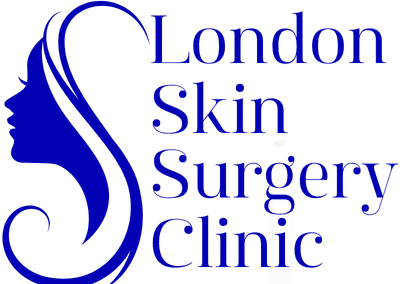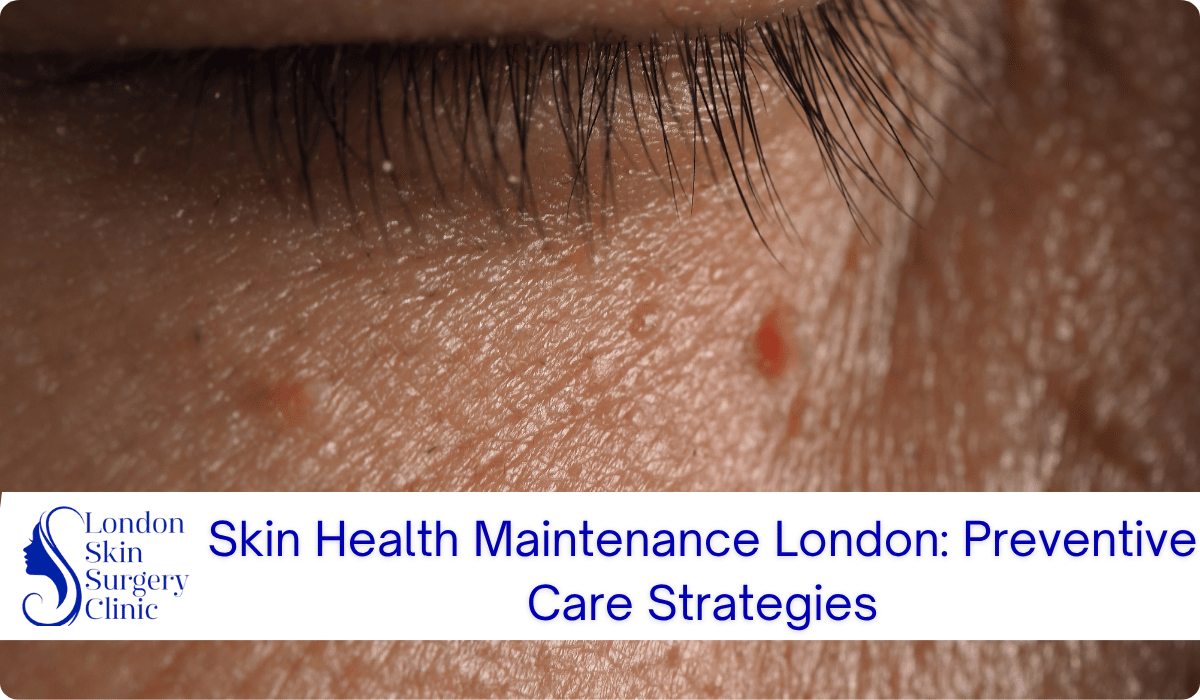Skin Health Essentials: Your Guide to a Radiant Complexion
Maintaining healthy, radiant skin requires a comprehensive approach that combines a consistent daily care routine, proactive prevention strategies, and professional guidance. By understanding the fundamentals of skin health, developing a personalized skincare regimen, and making mindful lifestyle choices, individuals can effectively address concerns and optimize their skin’s overall wellness.
Regular check-ups with a dermatologist, coupled with advanced treatment options when needed, can provide additional support and targeted solutions for specific issues. Ultimately, investing in a holistic skin health maintenance plan is key to achieving and sustaining a clear, vibrant, and resilient complexion at every age.
Table of Contents
- Understanding the Fundamentals of Skin Health Maintenance
- Developing a Proactive Skin Care Routine for Optimal Results
- How Often Should You Visit a Dermatologist for Preventive Care?
- Daily Habits and Lifestyle Choices That Promote Healthy Skin
- Identifying and Preventing Common Skin Problems Early
- The Role of Nutrition and Supplements in Skin Wellness
- Cutting-Edge Skin Health Optimization Treatments in London
- Creating a Personalized Skin Health Maintenance Plan
Understanding the Fundamentals of Skin Health Maintenance
Maintaining healthy skin involves a combination of preventive measures, daily care practices, and periodic check-ups with a dermatologist. The skin is the body’s largest organ and serves as a protective barrier against external factors like UV radiation, pollution, and bacteria. To keep skin functioning optimally, it’s essential to understand the basics of skin health maintenance.
Key aspects of skin health fundamentals include proper cleansing to remove dirt and oil, hydration to prevent dryness and irritation, sun protection to minimise UV damage, and nourishment through a balanced diet and targeted skincare ingredients. By learning about these foundational elements, individuals can take proactive steps to promote skin wellness and address concerns before they escalate.
Developing a Proactive Skin Care Routine for Optimal Results
A consistent, proactive skin care routine is crucial for achieving and maintaining healthy, radiant skin. While specific product selections may vary based on individual skin type and concerns, every effective regimen should include several core steps.
Gentle cleansing morning and night helps to clear pores, remove impurities, and create a clean canvas for subsequent products. Hydration, through the use of toners, essences, serums, and moisturisers, is key to keeping skin balanced and supple. Incorporating antioxidant-rich and reparative ingredients can help protect against environmental stressors and support skin’s natural renewal processes. Sun protection is a non-negotiable daytime step for all skin types. Together, these proactive measures can help skin look and feel its best both immediately and over time.
How Often Should You Visit a Dermatologist for Preventive Care?
In addition to at-home care, regular check-ups with a dermatologist are an important component of a comprehensive skin health maintenance plan. For most people, scheduling an annual skin examination is recommended to screen for potential concerns and catch any issues in their earliest stages.
However, individuals with specific risk factors, such as a personal or family history of skin cancer, many moles or freckles, fair skin, or a history of sunburns, may benefit from more frequent dermatology visits. Those with chronic skin conditions like eczema, psoriasis, or acne may also require regular monitoring and professional treatment. Consulting with a dermatologist can help determine the optimal visitation schedule for one’s unique needs and skin health goals.
Daily Habits and Lifestyle Choices That Promote Healthy Skin
Beyond product choices, daily habits and lifestyle factors can significantly impact skin health. Adequate hydration, through both internal water consumption and external moisturisation, helps to keep skin cells functioning properly. Eating a nutrient-dense diet rich in fruits, vegetables, whole grains, and healthy fats provides skin with the building blocks it needs to maintain strength and elasticity.
Managing stress through practices like meditation, exercise, and self-care can help minimise the negative effects of cortisol on skin. Avoiding excessive alcohol consumption and smoking is also crucial, as these habits can accelerate skin aging and dehydration. When spending time outdoors, seeking shade, wearing protective clothing, and applying broad-spectrum sunscreen can help prevent cumulative UV damage. By making mindful choices each day, individuals can create a solid foundation for lasting skin health.
Identifying and Preventing Common Skin Problems Early
Many common skin concerns, such as fine lines, dark spots, and texture irregularities, result from a combination of intrinsic aging processes and external factors like sun exposure and pollution. By learning to identify these issues in their earliest stages, individuals can take proactive steps to prevent further progression.
Regular self-examination, both visually and through touch, can help detect any new or changing moles, patches of rough or discoloured skin, or persistent redness and irritation. Using products with targeted active ingredients, like retinoids, antioxidants, and alpha-hydroxy acids, can help maintain skin’s collagen production, combat hyperpigmentation, and promote cellular turnover. Annual dermatology check-ups provide an opportunity for professional assessment and recommendations to keep skin healthy and resilient. Early detection and intervention are key to avoiding more serious skin problems down the line.
The Role of Nutrition and Supplements in Skin Wellness
What we consume can have a direct impact on skin health and appearance. A balanced diet that includes a variety of colourful fruits and vegetables, lean proteins, and healthy fats provides essential vitamins, minerals, and antioxidants that support skin’s structure and function. Staying well-hydrated by drinking plenty of water throughout the day helps maintain skin’s moisture balance and elasticity.
In some cases, dietary supplements may be recommended to address specific skin concerns or nutrient deficiencies. For example, omega-3 fatty acids have been shown to help reduce inflammation and dryness, while vitamin C supports collagen production and offers antioxidant protection. However, it’s important to consult with a healthcare professional before starting any new supplement regimen, as individual needs may vary. By nourishing skin from the inside out, a healthy diet and targeted supplementation can be powerful tools for promoting skin wellness.
Cutting-Edge Skin Health Optimization Treatments in London
For those seeking advanced solutions for skin health concerns, London is home to some of the world’s leading dermatology clinics and skincare specialists. From state-of-the-art laser therapies to innovative injectable treatments, these cutting-edge offerings can help address a wide range of issues and optimise skin’s overall health and appearance.
Treatments like fractional laser resurfacing can improve skin texture, minimise the appearance of fine lines and wrinkles, and stimulate collagen production for a more youthful, radiant complexion. Injectables like neuromodulators and dermal fillers can provide targeted wrinkle reduction and volume restoration for a refreshed, natural-looking result. Specialised treatments are also available to address specific concerns like acne, rosacea, and pigmentation irregularities. By consulting with a skilled skincare professional, individuals can explore these advanced options and develop a personalised treatment plan to meet their unique skin health goals. The Skin Surgery Clinic London is one example of a leading facility offering a comprehensive range of cutting-edge skin health optimisation treatments.
Creating a Personalized Skin Health Maintenance Plan
Ultimately, the key to effective skin health maintenance is developing a personalised plan that takes into account one’s unique skin type, concerns, lifestyle factors, and goals. Working with a skilled dermatologist or skincare professional can provide invaluable guidance and support in creating a tailored approach.
This may involve a combination of at-home product selections, in-office treatments, dietary recommendations, and lifestyle modifications. Regular check-ins and adjustments can help ensure that the plan remains effective and relevant over time, as skin’s needs may evolve. With consistency, patience, and a commitment to healthy habits, a personalised skin health maintenance plan can help individuals achieve and maintain their best possible skin at every age and stage of life. Taking a proactive, comprehensive approach to skin wellness is an investment in both immediate and long-term health and confidence.
Frequently Asked Questions
What are the most important steps in a daily skincare routine?
The most important steps in a daily skincare routine include:
- Cleansing to remove dirt, oil, and impurities
- Hydrating with toners, essences, serums, and moisturizers to maintain skin’s moisture balance
- Protecting skin from UV damage with broad-spectrum sunscreen
- Nourishing skin with antioxidant-rich and reparative ingredients to support skin’s natural renewal processes
How often should I see a dermatologist for skin health check-ups?
Most people should schedule an annual skin examination with a dermatologist to screen for potential concerns and catch any issues early. However, individuals with specific risk factors, such as a history of skin cancer, many moles, fair skin, or chronic skin conditions, may benefit from more frequent check-ups. Consulting with a dermatologist can help determine the optimal visitation schedule for one’s unique needs.
What lifestyle habits can impact skin health?
Several lifestyle habits can significantly impact skin health, including:
- Hydration through adequate water consumption and external moisturization
- Eating a nutrient-dense diet rich in fruits, vegetables, whole grains, and healthy fats
- Managing stress through practices like meditation, exercise, and self-care
- Avoiding excessive alcohol consumption and smoking
- Protecting skin from UV damage by seeking shade, wearing protective clothing, and applying sunscreen
Can nutrition and supplements play a role in skin health?
Yes, nutrition and supplements can play a significant role in skin health. A balanced diet that includes a variety of colorful fruits and vegetables, lean proteins, and healthy fats provides essential vitamins, minerals, and antioxidants that support skin’s structure and function. In some cases, dietary supplements like omega-3 fatty acids and vitamin C may be recommended to address specific skin concerns or nutrient deficiencies. However, it’s important to consult with a healthcare professional before starting any new supplement regimen.
What types of advanced skin treatments are available for optimizing skin health?
Advanced skin treatments for optimizing skin health include:
- Fractional laser resurfacing to improve skin texture, minimize fine lines and wrinkles, and stimulate collagen production
- Injectable neuromodulators and dermal fillers for targeted wrinkle reduction and volume restoration
- Specialized treatments for specific concerns like acne, rosacea, and pigmentation irregularities
Consulting with a skilled skincare professional can help individuals explore these advanced options and develop a personalized treatment plan to meet their unique skin health goals.
How can I create a personalized skin health maintenance plan?
To create a personalized skin health maintenance plan, it’s essential to consider one’s unique skin type, concerns, lifestyle factors, and goals. Working with a skilled dermatologist or skincare professional can provide invaluable guidance and support in developing a tailored approach that may involve a combination of at-home products, in-office treatments, dietary recommendations, and lifestyle modifications. Regular check-ins and adjustments can help ensure the plan remains effective over time, as skin’s needs may evolve.


